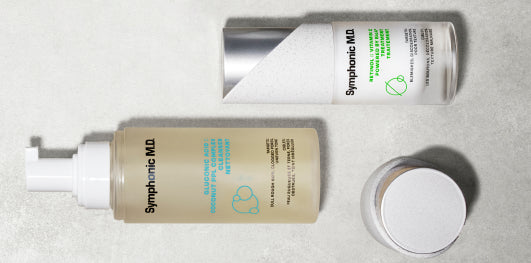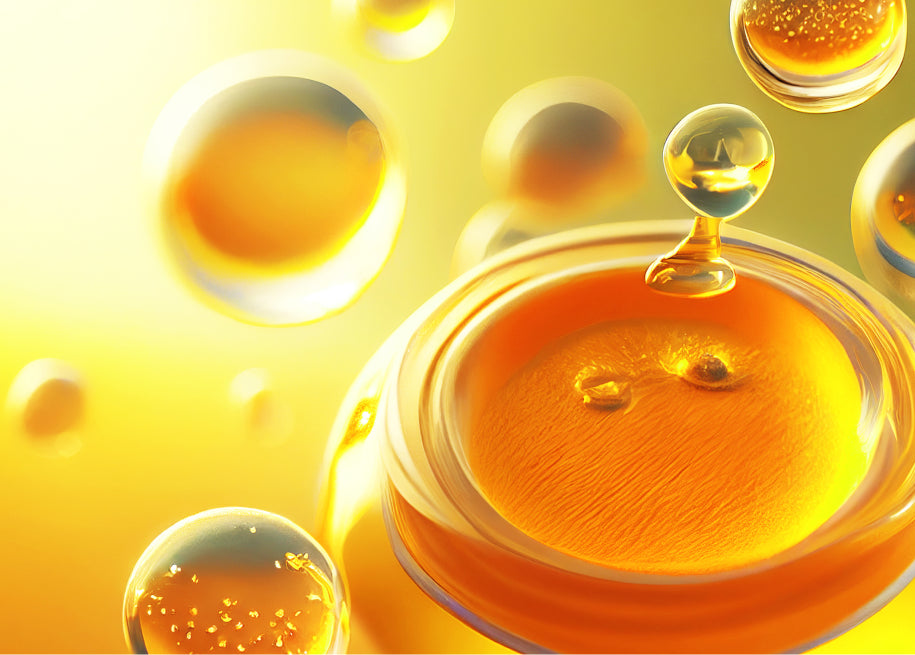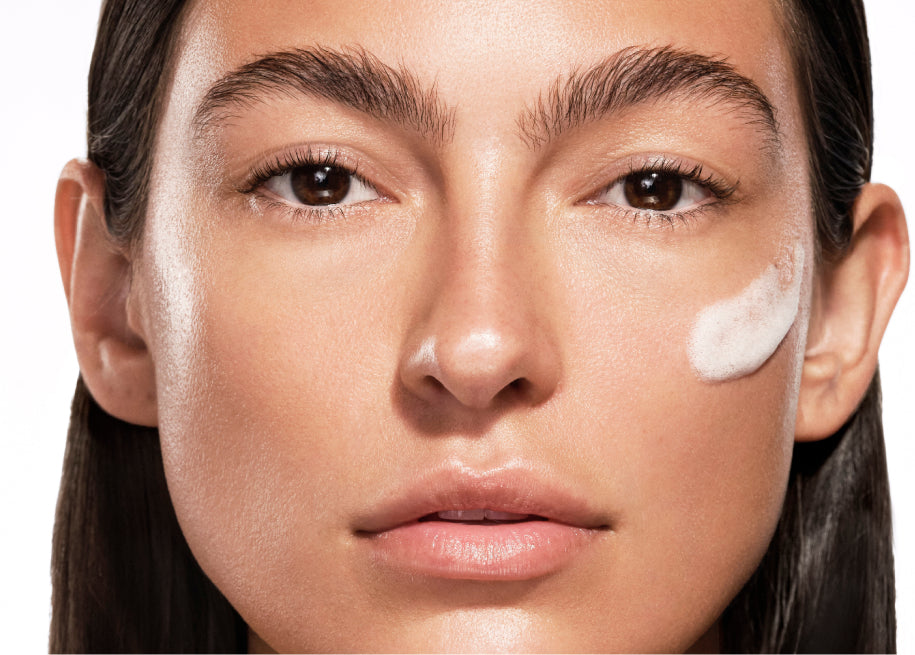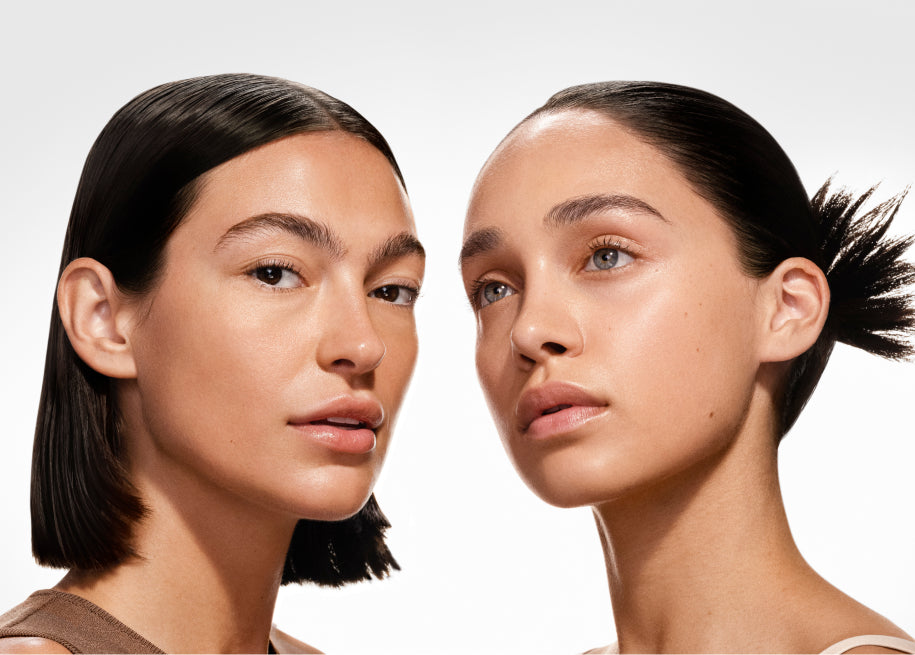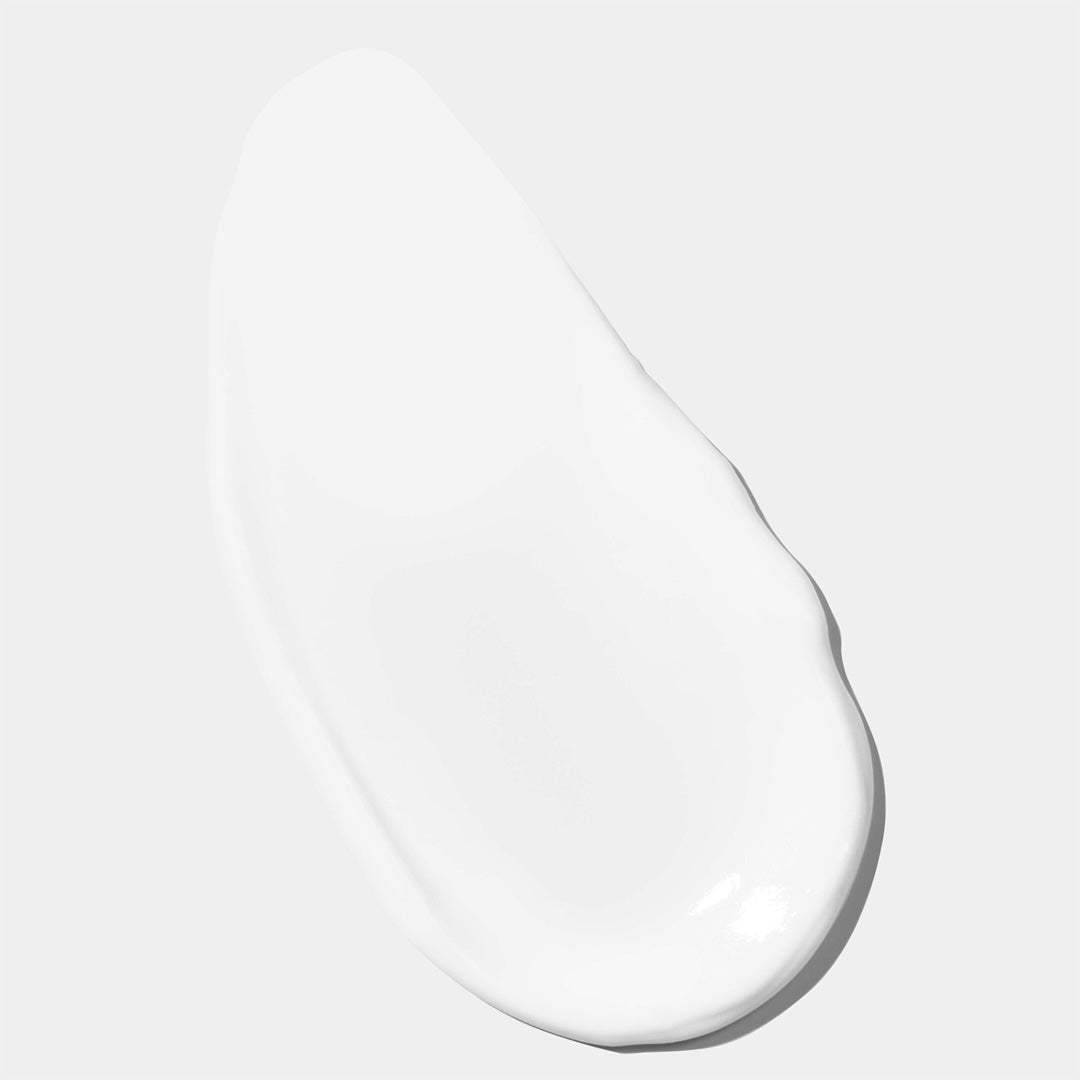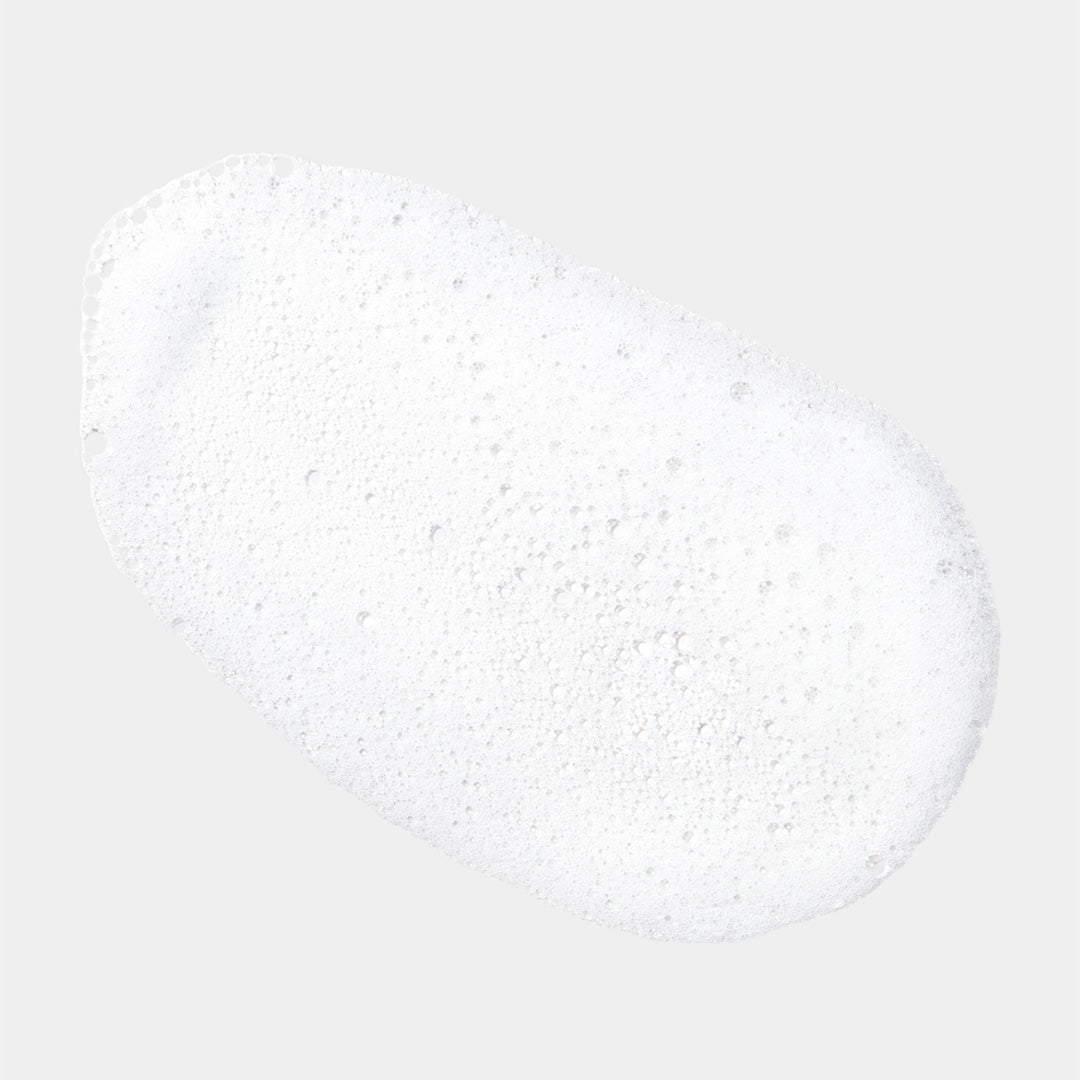Along with uneven skin tone and signs of aging, uneven skin texture is one of the most common things that people say they'd like to change about their skin. But before you can change it, you have to know what causes textured skin.
Textured skin has become a major focus of skincare, so we've put together a guide to textured skin to answer all the daunting questions: what causes it, how to treat it, and how to prevent it.
What is textured skin?
Everyone has their own natural skin texture. Your skin is unique because of your individual genetics, environment, skin health, and skincare routine.
When we talk about "textured skin", though, we're usually talking about uneven texture. Skin that looks bumpy, rough, or uneven can be a problem.
Most of the time, your skin is fairly smooth. The sulcus cutis (grooves in the skin) and crista cutis (raised areas of skin) are close together, with some natural variation. But if the difference between the sulcus cutis and crista cutis gets larger, then it can be noticeable.
What does textured skin look like?Textured skin can affect your skin's appearance in several ways. It can make your skin tone look dull, because the uneven surface doesn't reflect light as well as smooth skin. There could be patches of dry or flaky skin, and it might feel rough, bumpy, or dry to the touch.
You can have uneven skin texture anywhere on your body. However, it's usually most noticeable on your face.
Is textured skin normal?
Yes! Skin texture is completely normal. If you saw someone with completely smooth, untextured skin, you'd probably think they looked kind of strange.
Some texture is natural. Uneven skin texture is also very common. But if you're not happy with it, or you'd like slightly smoother skin, then you can respond with skincare routines and treatments.
It can make your skin tone look dull, because the uneven surface doesn't reflect light as well as smooth skin.
How do you know if you have textured skin?
If you had smooth skin before, you'll notice a change in how your skin looks and feels. Even if you have battled with skin issues in the past, you'll notice a rougher, bumpier feel and a dull tone to your skin.
What causes textured skin on the face?
Textured skin is a common issue because it has so many different causes. Lots of people experience it! If you have textured skin, or you're trying to avoid it, here are some factors to consider.
H3 - Skin sensitivity
Sensitive skin is one of the most common causes of uneven skin texture. In particular, your skin might become more textured if it reacts badly to something.
We're not talking about full-blown allergies here — just mild intolerance. The wrong skincare ingredients or food might cause mild symptoms, such as inflammation on the skin. Some of the most common irritants are parabens and alcohols in skincare, or gluten and soy in food.
Skin conditions
If you have any skin conditions, then you might be more likely to experience uneven skin texture. Common conditions like eczema, psoriasis, contact dermatitis, keratosis pilaris, and even acne can all create textured skin. Because of their inflammatory effect, they can make skin flaky, rashy, and dry.
Excess dead skin cells
The top cause of uneven skin texture is dead skin cells. As they build up on your skin's surface, they make it look dull, uneven, dry, and tired.
Sun exposure
Sun damage is the source of a lot of skin problems — including textured skin. Alongside short-term effects like sunburn, sun damage can also cause dryness, irregular pores, and coarse skin texture over time. It can even speed up the aging process and prevent skin from repairing itself properly.
Environmental pollution
Sunlight isn't the only source of skin damage. Your skin is constantly taking hits from pollution, dirt, and free radicals in the environment. It all causes stress for the skin — leading to uneven texture.
Aging
Your skin texture changes as you age — and it can become more uneven. As we get older, our cell turnover slows down, which means skin is slower to get rid of dead cells and replace them with new ones. That can result in duller, rougher skin.
Loss of collagen
Collagen is one of the fundamental building blocks of the skin. It's the ingredient that makes it supple, smooth, and firm. Without collagen to repair and strengthen skin, your skin texture can become tired and uneven.
Acne scarring
Sorry to say it, but even once acne has healed, it can leave uneven texture behind. While the swelling and inflammation of a breakout will die down, a bad case of acne can cause scarring and bumpy skin texture.
Smoking
Everyone knows that smoking is bad for you — but did you know that it affects your skin, too? Smoking ages your skin prematurely and can raise levels of inflammation, resulting in rougher skin.
How to treat textured skin
Textured skin might have a lot of causes, but fortunately, there are just as many ways to treat it. From skincare products to professional treatments, you have a whole range of options to improve textured skin.

Find the source of the problem
Before you start, you'll need to figure out what's causing your uneven skin texture.
Think about:
- products or food which could be irritating your skin.
- any skin conditions.
- environmental and lifestyle factors, like pollution exposure or sun damage.
Address existing scars or issues
Once you understand the problem, you can start treating it. Look for routines and products which specifically target the kind of skin damage you have. For example, if your textured skin is caused by acne scarring, you could look into retinol products; if it's the result of skin irritation, then you should focus on soothing emollients.
Exfoliate
Exfoliating removes dead skin cells and clears out your pores. So if your uneven skin texture is linked to dead skin build-up, acne, or pollution, then exfoliation will be extra important.
Aim to exfoliate 1-3 times a week, depending on how sensitive your skin is. Too much exfoliation can trigger irritation — but too little will mean uneven skin.
Moisturize
Textured skin is often linked to dryness, so finding the right moisturizer can make a big difference. Look for emollient moisturizers which will fill in the space between dry skin cells, especially after exfoliating.
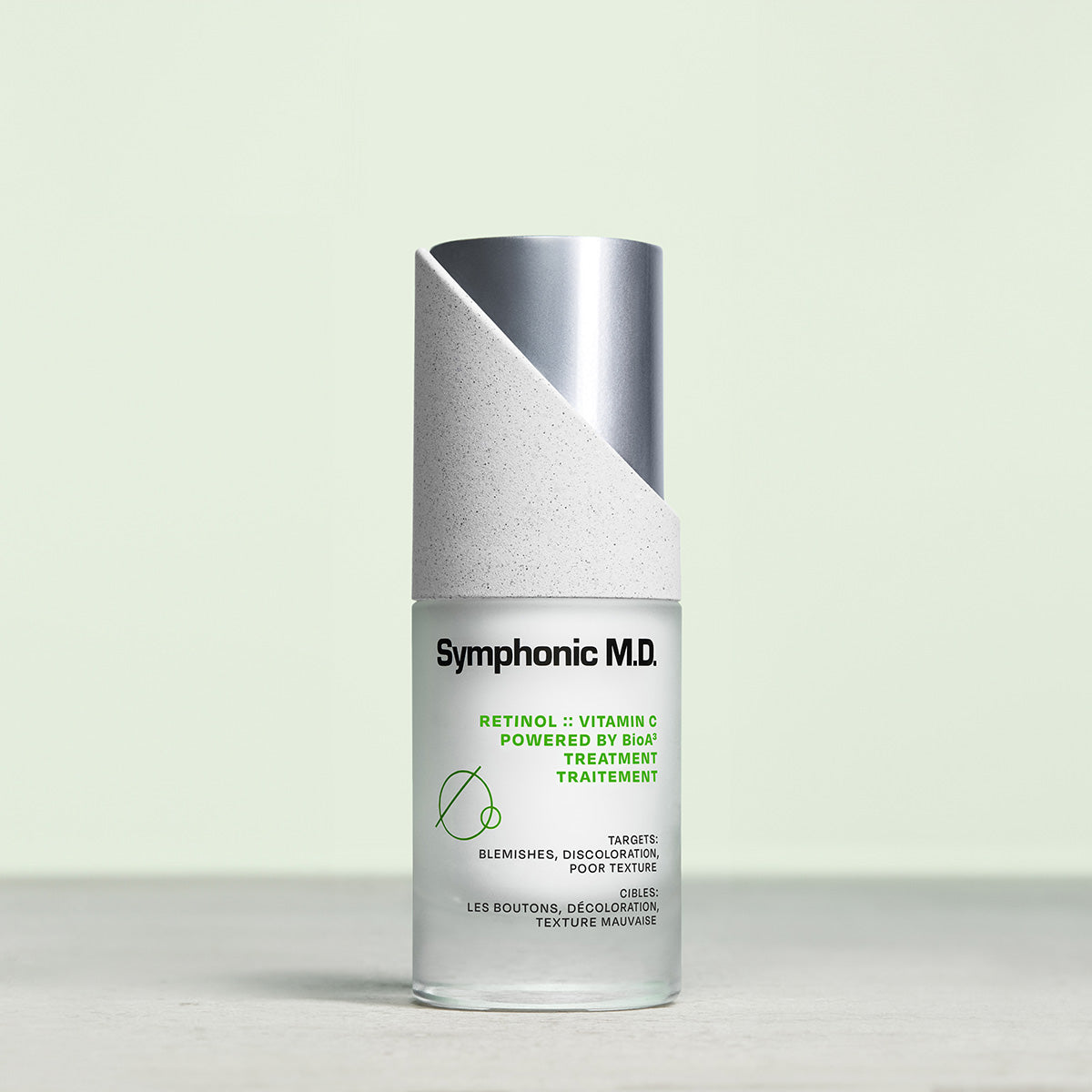
Retinol :: Vitamin C
This anti-inflammatory serum powered by BioA3 targets blemishes, tone, and texture — helping to clear bacteria and smooth skin without clogging pores.
Ingredients and products for treating textured skin
There's a huge range of skincare products to treat uneven skin texture. The right active ingredients can make a real difference — while the wrong product could make things worse.
Here are our top recommendations for skincare products that treat the causes of textured skin.
AHAs
Alpha-hydroxy acids (AHAs) are a group of acids that are naturally found in fruits, milk, and sugar cane. They're also a big favorite with skincare specialists.
AHAs are gentle, chemical exfoliants. They lift away dead skin cells without any need for harsh scrubbing. Result: smoother skin texture, less acne, and brighter skin tone.
Anti-inflammatory topicals
Topical treatments — products which you apply to problem areas — can also be highly effective at smoothing out skin texture. Anti-inflammatory treatments work by reducing inflammation to give you smoother and calmer skin.
Look for anti-inflammatory products that use emollients or humectants. These are even more effective because they soothe and hydrate skin, while helping to repair its natural defenses.
Chemical peels
Chemical peels are like super-strength exfoliators. They don't just lift away dead skin — they even out skin tone and stimulate the growth of new skin cells. Look for peels with AHAs that will work to improve skin texture and smooth out fine lines and wrinkles.
Hyaluronic acid
Hyaluronic acid is a key anti-aging ingredient in skincare. It can also have a visible effect on textured skin.
It works by helping the skin hold in more moisture. When skin is more hydrated, it plumps up, and fine lines and wrinkles start to fade. You'll also see an improvement in texture as any uneven patches get smoothed out.
Internal collagen support
As we've seen, collagen is a key ingredient in keeping skin smooth, firm, and plump. It's also crucial for renewing and repairing skin cells.
Collagen supplements could help support skin health from the inside. Research has found that taking collagen can reduce rough skin, along with a host of other health benefits.
Laser treatments
Laser treatments are a professional-level option if you want to get serious results. The laser removes the outer layer of skin (the epidermis) and heats the layer below it (the dermis). The heat stimulates your skin to grow more collagen fibers so that the fresh layer of skin is smoother, firmer, and more resilient.
Microneedling
If your textured skin is caused by scarring, then microneedling can be especially helpful. However, it's also effective against most types of uneven skin texture.
Microneedling works by using lots of tiny needles to prick the skin and stimulate growth. It can increase collagen and elastin production in your skin. Many people with acne scars and bumpy, clogged pores use microneedling to smooth their skin out.
Regular facials
They might be low-tech compared to lasers and microneedles, but regular facials can still do wonders for textured skin. They work against sun damage and air pollution to improve your skin's tone and texture. Focusing on regular maintenance of your skin now could help you avoid more complex treatments later on.
Retinol
We've already mentioned retinol — and for good reason. It's the secret weapon of skincare.
Retinol is a type of retinoid, a group of molecules which are derived from vitamin A. It can improve skin texture, even out skin tone, manage dryness and oil levels on the skin, and even reduce fine lines and wrinkles.
However, retinol products work in the long term. You'll have to wait at least 2 months before you see any results. After approximately 6 months, you'll be able to see the full effect of retinol on your skin.
New to retinol? Explore our beginner’s guide to retinol and find all the information you need to start using retinol safely and effectively. Dive into insights, tips, and expert advice to navigate your skincare journey with retinol today!
Vitamin C
Vitamin C works on skin in three ways:
- It's an antioxidant that fights free radical molecules. Vitamin C can reduce the signs of sun damage, pollution, and aging.
- It's a vitamin that stimulates collagen production in the skin. Vitamin C can improve skin's structure, firmness, and texture.
- It's an acid that exfoliates skin. Vitamin C can remove dead cells and stimulate new cell growth.
No wonder that it's the active ingredient in so many skincare products. It's even more effective at targeting textured skin when you combine vitamin C with retinol.
Our Retinol :: Vitamin C Powered by BioA3 Treatment has done just that! The anti-inflammatory formula powered by BioA3 targets blemishes, uneven skin tone and most importantly - rough skin texture, helping to clear bacteria, reduce discoloration, and smooth the skin without clogging pores.

Retinol :: Vitamin C
This anti-inflammatory serum powered by BioA3 targets blemishes, tone, and texture — helping to clear bacteria and smooth skin without clogging pores.
How to prevent textured skin
Ever heard the saying, "an ounce of prevention is worth a pound of cure"? Especially since a pound of most skincare products would be … well, pretty expensive.
You can support your skin to have smooth, even texture with just a few tweaks to your daily routine.
If your textured skin is caused by acne scarring, you could look into retinol products; if it's the result of skin irritation, then you should focus on soothing emollients.
Implement a consistent skincare routine
The most important thing in skincare is consistency. Applying a product once won't have any effect — but applying the right product, in the right way, every single day will make a huge difference to your skin.
Your basic skincare routine should include daily cleansing and moisturizing, with exfoliating sessions a couple of times a week. Look for cleansers, emollients, and chemical exfoliators that will improve and protect your skin texture.
New to using facial cleansers? Discover essential tips on proper cleansing techniques, things to consider to get the most out of your cleanser, and the remarkable benefits of adding a cleanser to your skincare routine in our extensive guide: How To Use A Facial Cleanser
Always remove makeup before bed
After a long day — or night — it's tempting to roll straight into bed without removing your makeup. But you could be doing more damage than you realize.
Leaving on makeup can cause a build-up of sweat, oil, and dirt that's bad for your pores. But even more importantly, a lot of skin repair happens while you're asleep. If you're still wearing a full face of makeup, then your skin won't be able to shed dead cells and get to work on new, smooth skin.
It's always worth taking a couple of minutes to remove makeup and follow your regular cleansing routine before falling asleep.
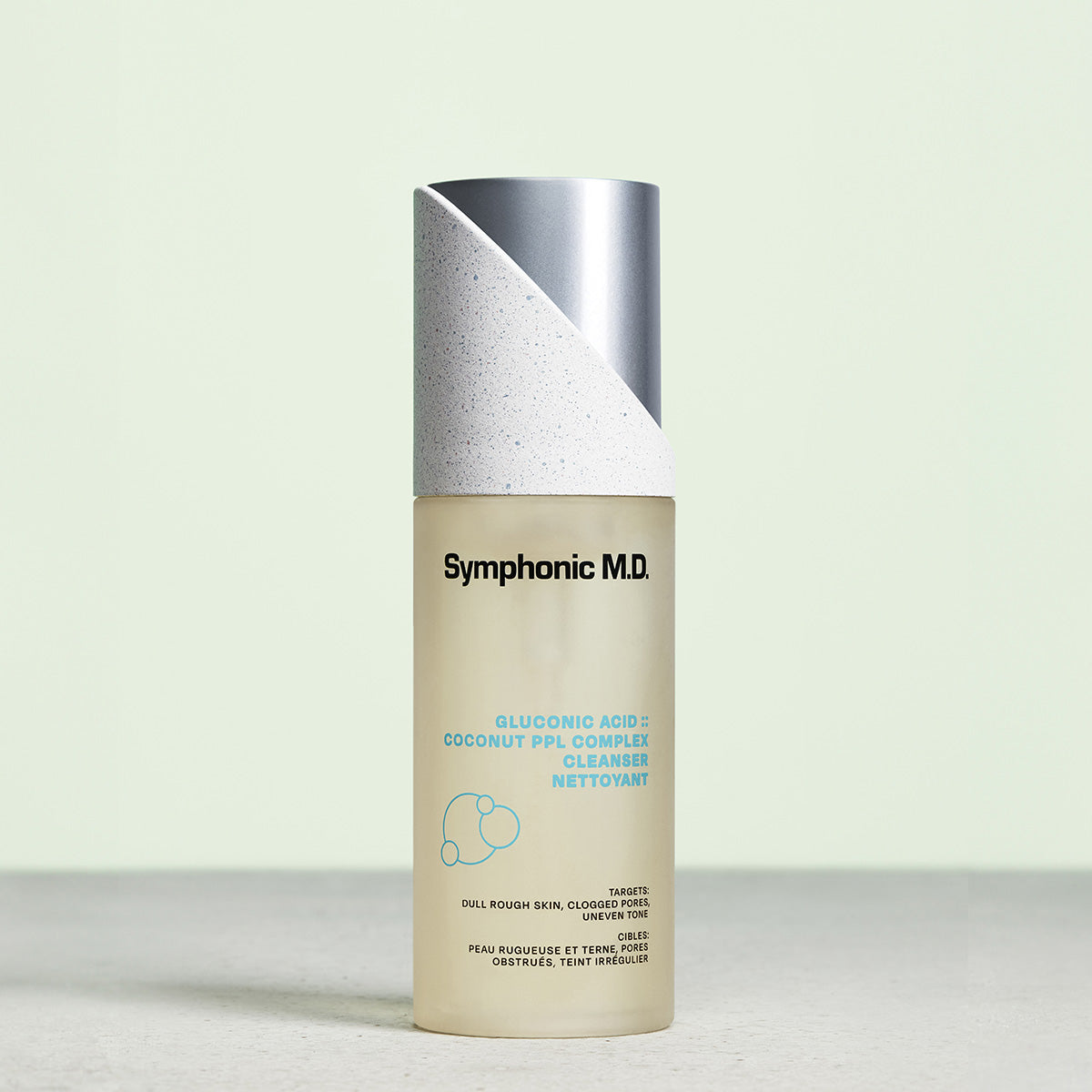
Gluconic Acid :: Coconut PPL Complex
This calming antimicrobial formula targets dull skin, clogged pores, and uneven tone — gently shedding cells while strongly stimulating barrier repair to leave skin soft and purified.
Use a skin mask
At-home skin masks can be a good alternative to regular facials — or even help support their effects. As well as nourishing skin, face masks can be an act of self-care that helps to reduce your stress levels … with positive results for your skin health.
Listen to your skin
If you struggle with uneven texture, then your skin may be trying to tell you something. Here's how to listen:
- Patch test new products to check for any negative reactions.
- If you're consistently seeing inflammation on your skin, try re-patch testing products that you've been using for a while.
- Pay attention to ingredients lists on skincare products so that you learn what to look for — and what to avoid.
Commit to a healthy lifestyle
Skincare isn't just about the products you put on your face. It's also about your lifestyle. Eating healthy, drinking plenty of water, getting fresh air and exercise, and avoiding dangerous habits like smoking will all have an impact on textured skin.
The bottom line
Textured skin can be caused by a long list of issues. But the good news is that there are lots of ways to treat and prevent it! Following a regular skincare routine, using the right cleanser, and using products with targeted ingredients like vitamin C and retinol can all help to improve rough skin texture.

